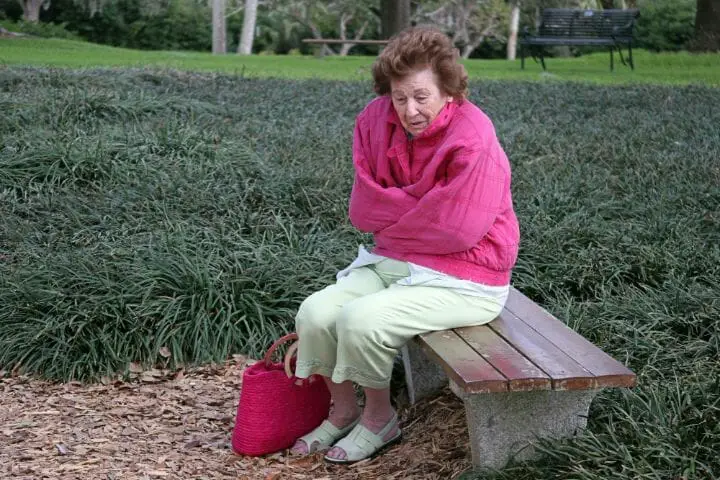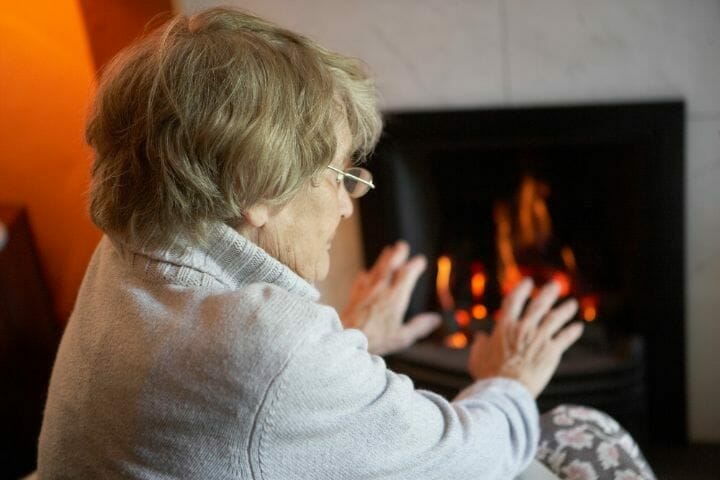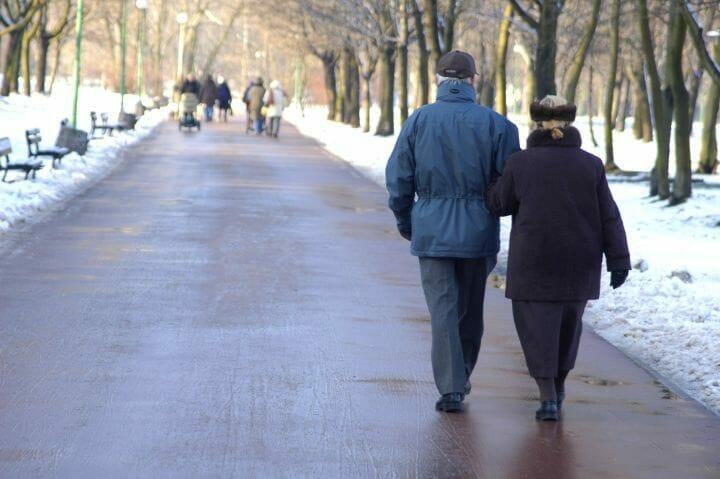Have you wondered why are elderly always cold? Our body loses its ability to regulate its temperature with age. In this article, we explore why seniors feel colder as they age and what to do about it.
With the pandemic looming over our heads it is difficult to give a warm welcome to this cold holiday season. We will be doing most things differently this time.
But somethings will remain the same, like taking care of your health and making sure that we keep warm and cozy as we brace ourselves for long, cold, and socially distanced winter.
Facing the challenges of the weather and going head-on into the treacherous winds and snow was one thing when the age was on our side. Now our body is as is having a hard time keeping up with the temperatures and maintain the body heat required.
What we must realize is that getting cold can have serious implications on your health. Most of us might let it by thinking, it is winter and this is the time we would all feel cold. You’d be right to think so, but wrong to do nothing about it and neglect it.
Contents
What Causes an Elderly Person to Be Cold All the Time?
Are you freezing as the years go breezing? Make keeping warm your new norm.
Irrespective of the fact that you are completely healthy or have some age-related ailments, the moment you start feeling cold do something about it.
Increase the temperature on the thermostat, saving money does not outweigh saving yourself. Wear warm clothing, have a blanket over your feet while relaxing on the couch enjoying your favorite show. Keep your socks on when you sleep at night.
Studies show that while the body temperature does not change much as one ages, it is harder for the body to regulate your temperature, as you grow older.
The blood flow slows down and it is difficult for the body to maintain the temperature, especially at the extremities such as your hands, feet, and even the head.
Thus, remember it is ok to wear a cap while you sleep, as long as you’re comfortable and more importantly warm.
You may also like Best Snow Shovels for Seniors
How to Keep Elderly Warm?
Does old really mean cold?
The above-mentioned precautions are for everyone because feeling chillier is not only a problem the elderly with ailments face but also healthy elders get cold sooner and have trouble keeping the body temperature at optimum.
This phenomenon of getting cold is called hypothermia. This is something that a normal human can face at any age. The inability of the human body to maintain a temperature of 95 Fahrenheit is called hypothermia.
In extremely cold weather, a young fit person could also suffer from hypothermia, let alone someone who is elderly.
The reason for elderly people to feel colder and their bodies finding it difficult to keep up the temperature is, as the human body ages the walls of the blood vessels start to relax and lose elasticity causing decreased circulation.
Also, as you grow old the fat layer in your body starts thinning and this fat layer is essential in trapping the heat and keeping the body warm.
A good idea during these tough winters is to ensure the right temperature around you and to be well fed. Ensure you have a good heavy meal and keep up your body weight as you don’t want to lose that fat layer under your skin that is working hard to keep you warm.
Another thing to beware of is alcohol, limit your consumption if at all you do. Consuming alcohol gives warmth is a myth, alcohol consumption is going to decrease your metabolic rate which is essential to maintain your body heat.
You may also like Best Gloves for Wheelchair Users
What Is the Ideal Room Temperature for an Elderly Person?
While everyone is different, in general, the elderly feel colder as they age. Thus it makes sense to keep the home temperature a little higher for seniors. The ideal room temperature for the elderly is around 72 to 76 degrees Fahrenheit or 22 to 24.5 degrees Celcius.
Within this range, most seniors will find a comfortable spot. Do realize that in some houses, basements tend to be cooler than the main living floor.
So if an elderly person lives in the basement, you might need to account for that or if it is getting uncomfortably warm upstairs, look for alternatives like space heaters.
How to Should the Elderly Prep for the Winter?
The problem is a young person will generally bounce back from hypothermia, but for the elderly, once the body temperature drops it can cause heart attack, kidney problems, liver damage, or worse.
Thus, as the cold weather approaches the right thing to do is to go talk to your doctor and learn more about how you can save yourself from getting hypothermia1.
If you have Thyroid problems or diabetes, your blood flow is comparatively slower and you will struggle to keep warm. Keep the right clothing handy, maintain a higher temperature within the house to ensure you are warm and cozy.
Another important thing you must do is talk to your doctor about medications that you might be on and the ones you should keep handy for the winter god forbid the need arises.
For example, the cold medicines that you take over the counter when combined with inactivity can affect the body temperature.
You may also like Gifts for Elderly Who are Always Cold
Dementia and Feeling Cold
If you are suffering from dementia then it is a good idea to bundle up for the winter. Ask your friends or family members to come and regularly check up on you, and ideally live with them for the extreme days.
Loss of memory can affect your choice of clothing when you go outside or when it comes to keeping the right temperature in the house.
Thus, as suggested bundle up, live with someone during the winter, or ask family and friends to check up on you regularly.
How can one tell if they are suffering from hypothermia? Well, there are signs for the early stages and the late stages as well.
Early stage symptoms are:
- Pale skin
- Puffy face
- Cold hands and feet
- Shivering (not visible in all cases)
- Slower and slurry speech
- Feeling drowsy or sleepy
- Anger and confusion
Later stage symptoms:
- Moving slowly
- Being clumsy in activities
- Walking trouble
- Stiff and jerky limb movements (both arms and legs)
- Slowing heartbeat rate
- Slow or shallow breathing
- Blacking out or losing consciousness
If you catch yourself having any of the early stages turn up the heat in your house and get extra layers over yourself. Put on a sweater, a cap, or wrap a blanket around yourself to ensure you don’t lose any more temperature.
If you find yourself or someone having the later stage symptoms, call 9-1-1. Try to keep the affected person warm till help arrives, give them something warm to drink. Make sure the drink does not contain alcohol or caffeine. A big mistake would be rubbing the persons arms and legs to keep them warm. Do not rub the person, do not try and get them in a bath, do not use a heating pad.
It is normal for the elderly to feel colder as they age. But knowing your body and taking adequate and timely precaution can mean a more comfortable and healthy winter.
References



